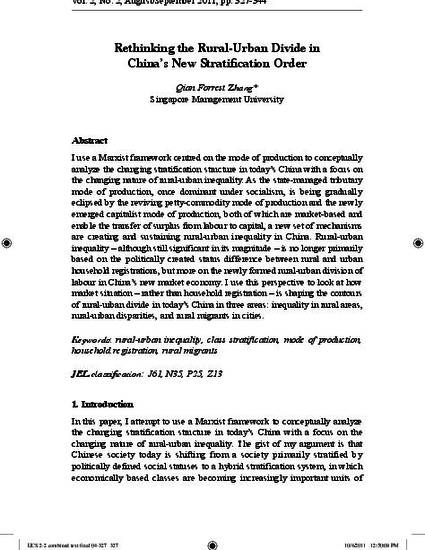
I use a Marxist framework centred on the mode of production to conceptually analyze the changing stratification structure in today’s China with a focus on the changing nature of rural-urban inequality. As the state-managed tributary mode of production, once dominant under socialism, is being gradually eclipsed by the reviving petty-commodity mode of production and the newly emerged capitalist mode of production, both of which are market-based and enable the transfer of surplus from labour to capital, a new set of mechanisms are creating and sustaining rural-urban inequality in China. Rural-urban inequality – although still significant in its magnitude – is no longer primarily based on the politically created status difference between rural and urban household registrations, but more on the newly formed rural-urban division of labour in China’s new market economy. I use this perspective to look at how market situation – rather than household registration – is shaping the contours of rural-urban divide in today’s China in three areas: inequality in rural areas, rural-urban disparities, and rural migrants in cities.
- rural-urban inequality,
- class stratification,
- mode of production,
- household registration,
- rural migrants
Available at: http://works.bepress.com/forrest_zhang/21/
